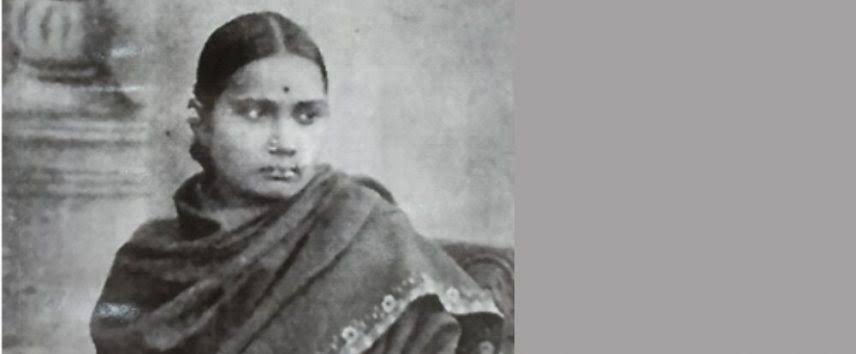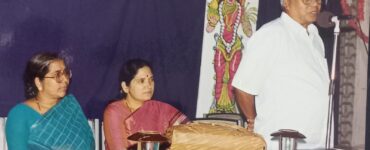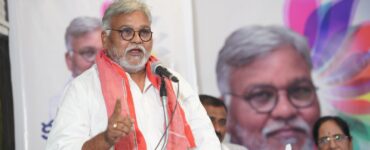I have been hearing, reading and watching people saying that education for women is important, which made me do some serious thinking. It has been a priority for many elitists and social reformers. So, who said that it was not important, and what was their rationale for opposing women’s education.
I admit I have not read extensively, nor am I a scholar of any significance. Nevertheless, within the scope of my limited knowledge, I have come to understand that there is really no plausible explanation for anybody to take women’s education or lack thereof, as a separate, independent issue. I will explain why I think so.
We do not know about prehistoric times, but we do have ample evidence that women in the Vedic period were not denied acquisition of knowledge. Scholars often cite female scholars such as Gargi, Maitreyi, Lopamudra, Viswavara and Apala. They all were said to have participated in literary discussions along with men. Noteworthy is the fact that men did not object to women’s participating in their discussions. There seem to be occasions when women challenged men’s views. Modern day scholars too cite these names without any reservations.
However, it is not clear whether these women were exceptions, or it was a general rule. Secondly, who educated them? How did they acquire that level of knowledge? I could not find answers to these questions, but would be happy to learn, if somebody could throw some light on them.
From the books and articles I have read, one truth is strikingly obvious. Women in royal families and the wealthy were educated, and have read classical literature in Telugu and Sanskrit. Some of them have written poetry. Andhra kavayitrulu [Telugu Poetesses} by Utukuri Lakshmikanthamma records the works of 283 poetesses from Vedic times to late 20th C.
Similarly, Abala Saccharitra Ratnamala in 2 vols. by Bhandaru Acchamamba features 58 women of excellence in various fields. The wording in the title is a bit amusing. “Abala” literally means weak yet all the women portrayed in these two volumes are shown to have excellent fortitude and knowledge. In her foreword to the book, Acchamamba quoted a line from Bhavabhuti’s Uttara ramacharitra that, “Ethical values are venerated, not masculinity or femininity.”
In other parts of society, the underprivileged, not only women but men also were not educated. Thus better explanation for lack of education is not gender but wealth. A second question is those who have acquired knowledge happened to it in what manner. I will come to it in a moment. First, let us see how the movement of women’s education began.
In the late 19th C, Kandukuri Veeresalingam and other social reformers started to promote women’s education. What is interesting here is his reasoning for women’s education. He said, “Women, if not educated, will waste their time fighting with each other.” Let us stop here for a moment, and peruse on his reason to come to that conclusion. Are not there any men who waste their time with meaningless arguments and verbal exchanges; some polite and educational but some are not.
Kokkonda Venkataratnam Pantulu was a staunch opponent of Veeresalingam in to women’s education. That Veeresalingam and Venkataratnam Pantulu exchanged fierce words in their respective magazines is a well-known fact. So also, in late 19th Century, Vedam Venkataraya Sastry and Chellapilla Venkata Sastry. Sripada Subrahmanya Sastry referred to the arguments between Ramakrishna Kavulu and Tirupati Venkata Kavulu in his Anubhavaalu Jnapakaalu.
Thus Veeresalingam’s comment that women should be educated necessarily to avoid they wasting their time on quarrels does not hold water. In my opinion, he came to that conclusion because he watched his mother and his aunt (mother’s older sister) bickerings about his upbringing.
For the purpose of argument let us accept women need to be educated. Then the question is what kind of education, and to what purpose?
The education Veeresalingam had designed however was from progressive in today’s terms. His syllabus was limited to woman’s duties in regard to serving her husband, supporting him in his activities, and raising children; pretty much, as they say in America, keeping women “barefoot and pregnant”. This is not what modern day progressives would want in women’s education.
During his period, even women like Pulugurta Lakshmi Narasamamba opposed Veeresalingam’s idea of women’s remarriage but supported women’s education and followed only his syllabus.
The second question, to what purpose needs greater attention as it is getting now. Before going into purpose per se, we need to examine the definition of “education”. What do we mean when we say somebody is educated (చదువుకున్నవాడు) or not educated (చదువు లేనివాడు)? How did the concept that somebody is educated if he attended a school or college start? It seems to have started with the Western concept of “educated”. Veeresalingam, influenced by Western mode of thinking to some extent, I believe, founded schools for girls in the late 19th century. Originally, it was co-education schools, and later, he founded separate schools for girls. Right around that time, the British missionaries started schools to promote their religion first, and later, to promote their mode of governing. In other words, education meant a specific building, specific areas of expertise, and an organized group of teachers. Going to school meant to go a particular place at a scheduled time and receiving knowledge from particular individuals called teachers.
By default, that meant knowledge acquired from parents and other individuals (gurus) at home, or by self-study, is not to be taken into account! Is it not strange to think that all the works created by persons, men and women, who had not attended these “schools” and “colleges” are not literature?
Bhandaru Acchamamba was not “educated” in that sense; however, her humungous work remain a standard work to this day. In this context I cannot help but think how our modern day “educated” are performing. Since I am interested in literature, I would like to refer to writers, although the performance is almost similar across the board in all fields.
In some ways this is personal, nevertheless, the point I am going to make is valid in general as well. In November 2021, an article Dr. Ramesh Prasad Ravella has been published in Misimi monthly [print] magazine. The title is Nidadavolu Malathi. This is the 14th article under the running title Expatriate literature. The article nominally touched upon the title, Nidadavolu Malathi, which spanned 7 decades and went into a smorgasbord of writers and stories that have nothing to do with either Nidadavolu Malathi or expatriate literature. It is glaringly obvious that the writer has no idea of what comprises expatriate literature. Compare Abala Saccharitra Ratnamala in 2 volumes depicting lives and accomplishments of 58 women, Indian and foreign, to the irresponsible writings of today’s educated writers. (For further details on this topic, please see my article వ్యాసంలో ఏమి చెప్పేరు? శీర్షిక ఏమి చెప్తోంది? https://wp.me/p9pVQ-2gt on my blog telugu thulika.). The point I am trying to make here is, the term “educated” does not necessarily mean that they have received the ability to examine a given topic diligently and critically. Technically, it should be but it is not happening most of the time. Also, worth noting is that misimi, which is considered a magazine of literary merit by some of my friends, either did not see or chose to ignore the incongruities in this article, and went published it. As stated earlier, the article under reference is 14th, which means 13 more articles with similar content have been published. Not only the editors of misimi but readers also did not seem to pay attention to this shoddiness in this series of articles! That is what worries me. Who is responsible for the production of this crummy pieces in the name of literature? Educational institutions? Writers? Or, so-called progress embraced by our the elite in our society?
This is one example of what I happened to observe closely. I think it has become common for writers to write articles without a reasonable knowledge of the subject, and for the magazines to publish them.
If we compare this literature from the so-called “educated” to the women writers in the early 19th and 20th centuries, we can easily notice the difference between the women with real knowledge and commitment, and the current day writers with “education”.
In the final analysis, I would agree that getting systematic education in colleges and universities serves a specific purpose of achieving a goal in a given field, but acquiring knowledge outside of educational institutions does not mean lack of education; certainly “uneducated” is not correct epithet for them. Acquiring knowledge has its benefits and could serve an exemplary purpose. Most women have been knowledgeable in that sense. That women needed to be educated was a convoluted, untenable notion invented by social reformers and promoted by university-educated scholars.
*
REFERENCES:
Minna G. Cowan. The Education of the Women of India. New York: Fleming H. Revell Company, 1012.
Lakshmi Misra. Education of Women in India. 1921-1966. Bombay: MacMillan and company, 1966.
Illindila Saraswati Devi. Bharata naari, naadu nedu. Secunderabad: Yuva Bharati, 1975. (See my translation, Status of Women in India, Then and Now. on thulika.net. Link: https://thulika.net/?p=8595.)
Utukuri Lakshmikantamma. Andhra Kavayitrulu. Author, 1980.
Bhandaru Acchamamba. Abalaa saccharitra ratnamala. V.1 and V. 2. Komarraju Vinayaka Rao (publisher), 1935.
Kandukuri Veeresalingam. Sweeya charitra. Vijnana Chandrika Grantha Mandali?
Nidudavolu Venkata Rao. Tenugu kavula charitra. Madras: University of Madras, 1953.
Chellapilla Venkata Sastry. Kathalu, Gaathalu V. 2. Chellapilla Venkata Sastry Sons, 1959.
Sripada Subrahmanya Sastry. Anubhavaalu jnaapakaalu. Visalandhra Prachurana, 1999.
*









[…] for the link to my article. Who Opposed Women’s Education? Why […]
Good question Malathi garu and it begs an answer. Education that can help them support themselves with dignity, was perhaps not widely available, or thought was needed. This, despite the many example you show that there was no specific objection traditionally. So, I have been curious about that question.
If Veerelsalingam said women’s education is only so that they wouldn’t fight among themselves, we do not accept that now, even if people like me have an admiration for him, for having started the efforts he did then. Similarly, whatever the strengths of our culture and women have been, we should not defend anything that indicates that they were not encouraged to or discouraged from having a formal education. An example towards that came to my mind. Sankuntala, apparently speaks in Prakrit in Kalidasa’s play Abhijnana Sakuntalam – indicating she was not educated or at least not educated the way men were. This, despite being raised by a learned sage like Kanva.
Apparently, when Swami Vivekananda was asked about widow remarriage, he said, “Let the woman be educated, she can decide for herself”.
“That women needed to be educated was a convoluted, untenable notion invented by social reformers and promoted by university-educated scholars.” – This seems a little too generalized.
Whether because of opposition or lack of sufficient encouragement or incentive to get a girl educated the same way as a boy, there seems to have been a need for a stand to be taken for educating women. If Veeresalingam did not encourage it for the right reasons, I’m sure other like Durgabai Deshmukh did. At least, reading her biography gave me that indication.
Thanks for your input, Lalitha!